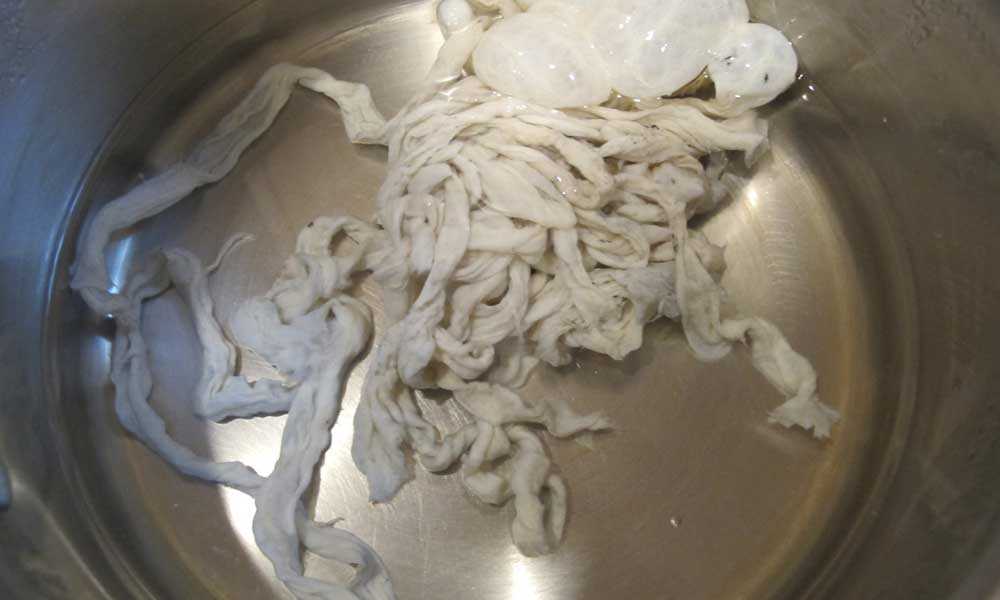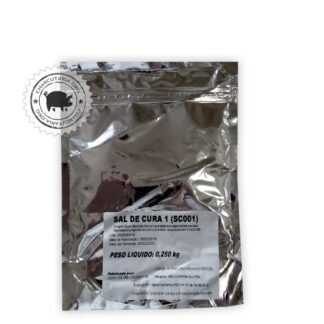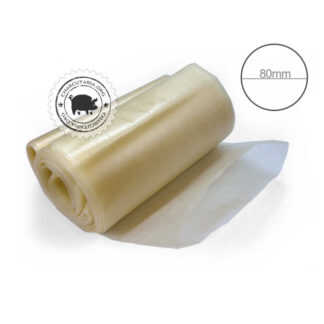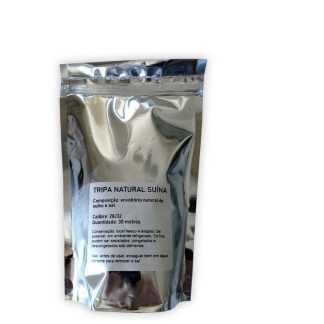
As tripas naturais são os envoltórios tradicionais e apresentam algumas vantagens em relação aos artificiais, como:
- Proteção ao sabor mais natural;
- Maciez, mastigação fácil e boa digestão;
- Tem boa absorção e retenção de sabor e aroma de defumação(do carvão, lascas ou serragem de madeira);
- Tem boa elasticidade e resistem bem ao calor e à pressão;
- Proporcionam boa torção ao separar as gomos das linguiças.
O preparo da tripa natural envolve as operações de limpeza do intestino, raspagem e salga seca. A limpeza inicial das tripas deve ser iniciada logo após a evisceração, pela retirada dos anexos e gorduras aderidas a essa estrutura. A seguir, as tripas são esvaziadas, por compressão da mesma entre os dedos, em um único sentido e em toda sua extensão. Em seguida, procede-se à lavagem interna e externa das tripas com água corrente e a raspagem da mucosa (lado interno do intestino) é feita com rasque de madeira. Uma vez terminado esse processo, as tripas devem ser lavadas com vinagre para eliminar o cheiro desagradável.
A salga a seco é realizada esfregando-se o sal grosso moído diretamente nas tripas que foram previamente reunidas em maços. Essas peças devem ser colocadas sobre uma superfície inclinada por 24 horas. Após esse período, as tripas são esfregadas com sal refinado e podem então ser armazenadas até o momento do uso.
Atualmente existe no mercado tripas naturais processadas. Entretanto, para o emprego dessas tripas são necessários cuidados, tais como: retirada do excesso de sal com água corrente e hidratação das tripas por imersão em água fresca por 1 hora (tendo o cuidado de massagear e separar as mesmas para evitar possíveis manchas).
No momento de embutir, as tripas devem ser colocadas em água aquecida, pois este procedimento facilitará o embutimento e amoldamento da massa ao envoltório, após o recheio.



